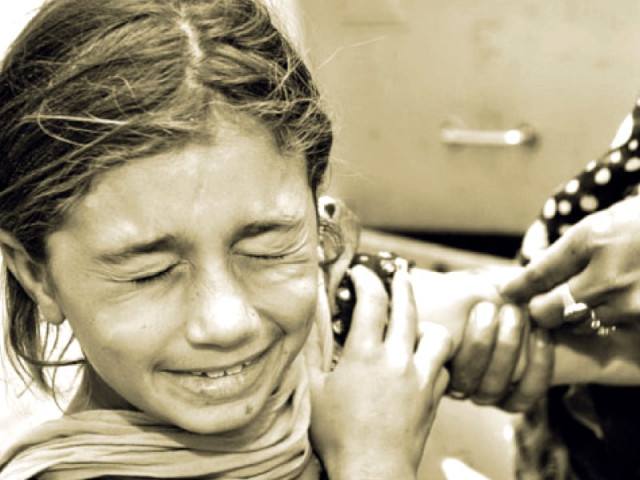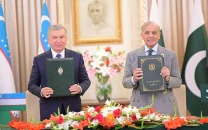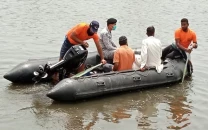Immunisation campaign in jeopardy: Lack of will, funds hinder anti-measles drive
Sources say the govt and its international partners’ focus is on the eradication of polio.

Sources say the govt and its international partners’ focus is on the eradication of polio. PHOTO: FILE
The delay in the release of funds to launch the national anti-measles campaign across the country has put the lives of 62.5 million children aged between nine months to 10 years at stake.
The measles supplementary immunisation activities (SIAs) were supposed to be carried out in June this year but owing to the unavailability of funds, it was deferred till October. However, lack of political commitment and focus towards fighting the disease has hindered the campaign’s progress.
An official at the federal expanded programme on immunisation (EPI) told The Express Tribune on condition of anonymity that currently the Accountant General Pakistan Revenues (AGPR) was not releasing $4.1 million contributed by the Japan International Cooperation Agency (JICA) for this drive, due to which the campaign had been halted.

He also said that the campaign was being ignored because the main focus of the government and even its international partners was on the eradication of polio.
“It is very important to carry out the anti-measles drive on time to immunise children who could possibly fall prey to this disease in the upcoming year and most of all to eliminate the disease,” he said.
Sharing details, the official said that after an outbreak of measles this year an application was submitted by the federal EPI and its international partners along with a plan of action to the Global Alliance for Vaccines and Immunisation (GAVI), requesting support for a nationwide anti-measles campaign that cost an estimated $65 million. Out of the total cost, GAVI committed $35 million, while the remaining amount has to be covered by the government.
“However, the Pakistan government earlier could not manage to raise the funds and is now not releasing the previously received amount, delaying the campaign further,” the official said.

The official also pointed out that the surge in the number of measles cases in the country since 2011 was worrisome. He said in 2011, the number of suspected measles cases reported in Pakistan was 4,380 out of which 2,533 were confirmed. Meanwhile in 2012, the figure of suspected cases had increased to 12,354, out of which confirmed cases were 2,975.
This year, however, the number of suspected cases has increased to 33,314 out of which 8,616 have been reported confirmed.
From 2012 to 2013, a total of 600 children died of measles in the country.
“This continuous increase in the number of cases indicates that this figure will rise by next year,” the official said.
He added that although the Punjab government had managed to raise its own funds and conducted the campaign, which wasn’t successful.
“An evaluation by a third party revealed that the campaign’s reach was below 90 per cent in most of Punjab’s districts,” the official said.
When contacted EPI national programme manager Dr Rana Muhammad Safdar expressed hope that the funds will be released soon.
“Although Pakistan had gotten off track in carrying out the anti-measles campaign this year, all issues pertaining to the release of funds will be resolves soon and the drive will be carried out in March next year,” he said.
Published in The Express Tribune, December 17th, 2013.



















COMMENTS
Comments are moderated and generally will be posted if they are on-topic and not abusive.
For more information, please see our Comments FAQ